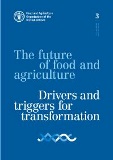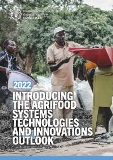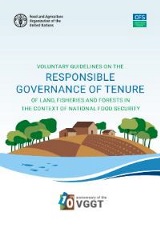Publications
Highlights

FAO Science and Innovation Strategy
10/2022
The Strategy aims to strengthen FAO’s work on science and innovation by providing Organization-wide guidance, coherence and alignment on science and innovation. Science and innovation serve as a foundation for the FAO Strategic Framework 2022–31 and have cross-sectoral relevance across the Organization’s programme of work.
.tmb-th600x450.jpg?Culture=en&sfvrsn=e3cb27e_11)
The Action Plan 2022–2025 for the implementation of the FAO Science and Innovation Strategy
10/2023
The FAO Science and Innovation Strategy Action Plan (2022-25) provides a common framework for FAO action at the country, sub-regional, regional and global levels. The FAO Science and Innovation Strategy is a tool to support the delivery of the FAO Strategic Framework 2022–31 and hence the 2030 Agenda for Sustainable Development. The Strategy’s Action Plan is a living document covering four years (2022–25), and it will be updated, as needed, to reflect new needs, opportunities and challenges.
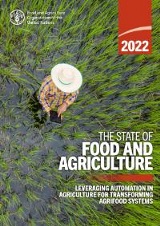
The State of Food and Agriculture 2022
11/2022
Leveraging agricultural automation for transforming agrifood systems

FAO Science and Innovation Strategy
10/2022
The Strategy aims to strengthen FAO’s work on science and innovation by providing Organization-wide guidance, coherence and alignment on science and innovation. Science and innovation serve as a foundation for the FAO Strategic Framework 2022–31 and have cross-sectoral relevance across the Organization’s programme of work.

Small-scale producers in sustainable agrifood systems transformation
09/2022
If the world is to transition towards agrifood systems that are more sustainable and equitable, small-scale production systems will be key to progress.
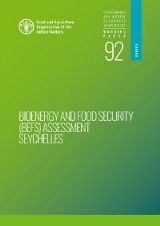
Bioenergy and food security (BEFS) assessment – Seychelles
08/2022
A sustainable and stable energy supply is essential for a country’s stability and wellbeing.
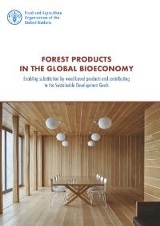
Forest products in the global bioeconomy
07/2022
Enabling substitution by wood-based products and contributing to the Sustainable Development Goals
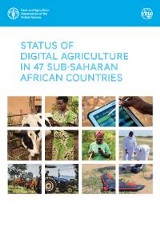
Status of digital agriculture in 47 sub-Saharan African countries
03/2022
Sub-Saharan Africa is uniquely positioned significantly increase its...
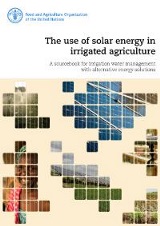
The use of solar energy in irrigated agriculture
03/2022
In the last decade, solar energy has experienced a rapid growth, which brings both environmental and economic benefits. In many countries, there is still no electricity grid extension in rural areas, and in the absence of a reliable electricity supply, farmers have to resort to diesel-based pumping irrigation systems.

Thinking about the future of food safety. A foresight report
03/2022
Agrifood systems are undergoing a transformation with the aim to provide safer, more affordable, and healthier diets for all, produced in a sustainable manner while delivering just and equitable livelihoods: a key to achieving the UN’s 2030 Agenda for Sustainable Development.
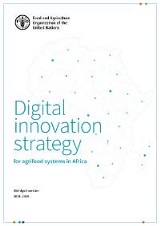
Digital innovation strategy for agrifood systems in Africa
02/2022
The Digital Innovation Strategy (DIS) of the Regional Office for Africa (RAF) of FAO has been prepared to respond to critical challenges facing inclusive and sustainable agrifood system transformation in sub-Saharan Africa. It is enshrined in the new Strategic framework 2022–2030 that aims to accelerate the "transformation to more efficient, inclusive, resilient and sustainable agri-food systems..
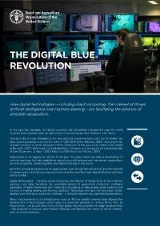
The digital blue revolution
02/2022
How digital technologies - including cloud computing, the internet of things; artificial intelligence and machine learning - are facilitating the advance of precision aquaculture.

Transforming Food Systems: Pathways for Country-led Innovation
01/2022
The need to urgently transition food systems to net-zero, nature-positive that can nourish all people, leaving no one behind is more critical than ever. The COVID-19 pandemic has furthered deepened complex challenges we already face from hunger and nutrition, climate and nature, and societal inequity.
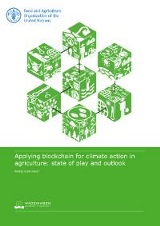
Applying blockchain for climate action in agriculture: state of play and outlook
10/2021
The objective of this study is to provide insights into potentialities, steps, and best practices in applying blockchain technology (BCT) to use cases in agriculture in the context of climate change, to explore the opportunities and challenges in applying the BCT in agricultural sectors with the aims of reducing greenhouse gas emission, increasing carbon sequestration...
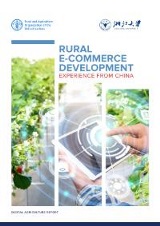
Digital agriculture report: Rural e-commerce development experience from China
08/2021
This publication, produced by FAO and Zhejiang University, examines how rural e-commerce could advance the digital transformation of agri-food systems, including increasing production efficiency, expanding farmers’ market access, improving poverty alleviation...

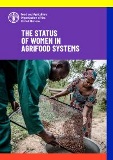
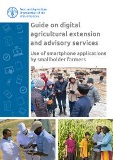
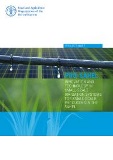
.tmb-th600x450.jpg?Culture=en&sfvrsn=c940880_6)
